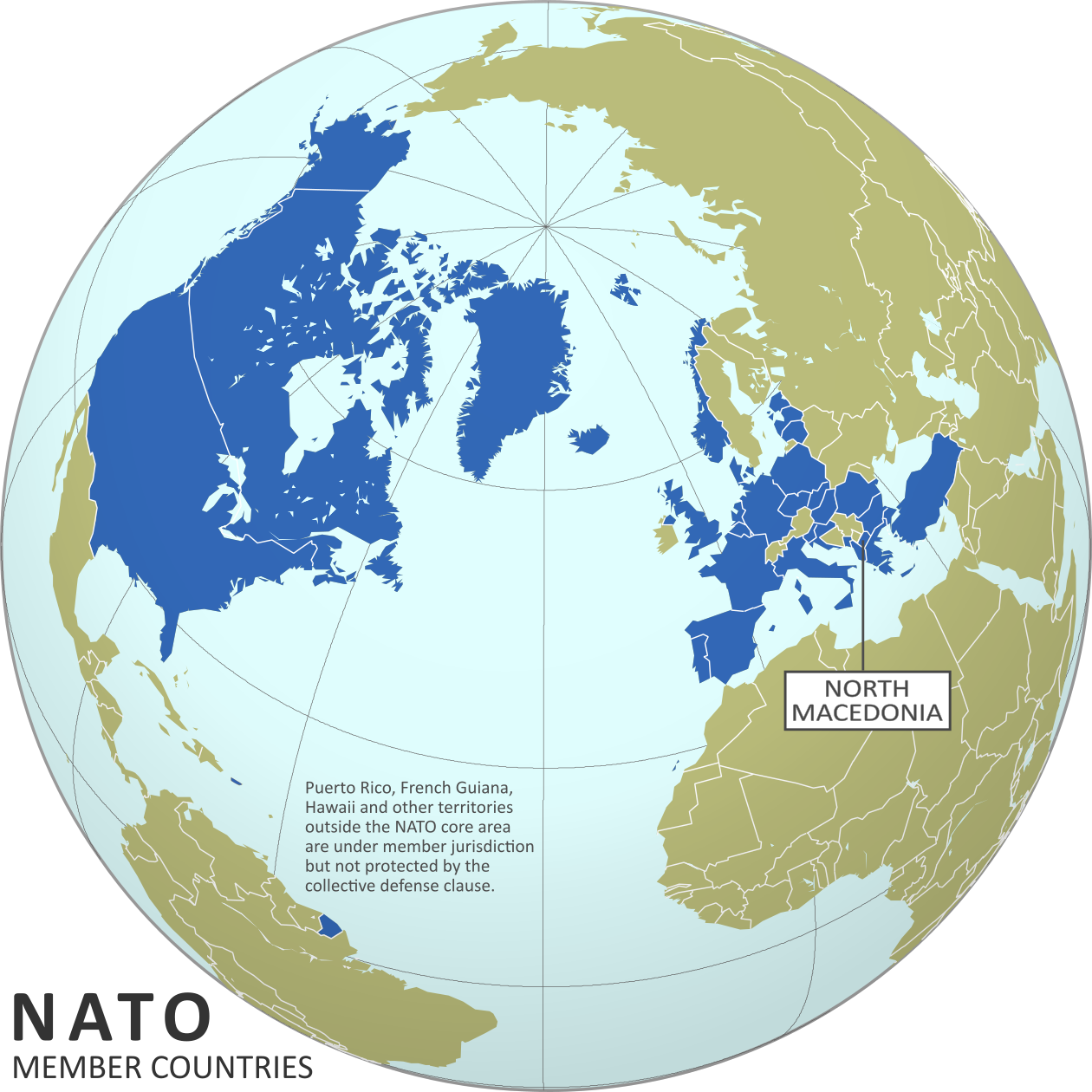International Relations
NATO-Russia Council Talks
- 14 Jan 2022
- 5 min read
For Prelims: NATO , NATO-Russia Council, European Union (EU), Rome Declaration.
For Mains: Russia-Ukraine Crisis, NATO, NATO-Russia Dynamics.
Why in News
Recently, the North Atlantic Treaty Organisation (NATO) and Russia discussed the ongoing situation in Ukraine and its implications for security in Europe at the NATO-Russia Council (NRC) in Brussels.
- Talks between representatives of NATO and Russia concluded without a clear outcome.
Key Points
- NATO-Russia Council:
- NRC was established at the NATO-Russia Summit in Rome (Rome Declaration) on 28 May 2002.
- It replaced the Permanent Joint Council (PJC), a forum for consultation and cooperation created by the 1997 NATO-Russia Founding Act on Mutual Relations.
- The NRC is a mechanism for consultation, consensus-building, cooperation, joint decision and joint action, in which the individual NATO member states and Russia work as equal partners on a wide spectrum of security issues of common interest.
- NRC was established at the NATO-Russia Summit in Rome (Rome Declaration) on 28 May 2002.
- Highlights of the Meet:
- NATO rejected Russia's demand for a new security settlement in Europe, challenging Russia to withdraw troops deployed near Ukraine and join talks on reducing the threat of open conflict.
- For the US and EU, Ukraine acts as a significant buffer with Russia. Ukraine is also building a naval base in Ochakiv and another in Berdyansk, which Russia is not happy about.
- The Western allies received no promise that Russia will stand down its forces — which Moscow insists pose no threat to its already partially occupied neighbour — despite the threat of economic sanctions.
- Russia demanded not to admit any more members into NATO and to withdraw western forces from its Eastern Allies. It also warned that the continued deterioration could lead to the "most unpredictable and most dire consequences for European security.”
- There are significant differences between NATO allies and Russia which will not be easy to bridge.
- NATO rejected Russia's demand for a new security settlement in Europe, challenging Russia to withdraw troops deployed near Ukraine and join talks on reducing the threat of open conflict.
- India’s Stance over Russia Ukraine Crisis:
- India did not join the Western powers’ condemnation of Russia’s intervention in Crimea and kept a low profile on the issue.
- In November 2020, India voted against a Ukraine-sponsored resolution in the United Nations (UN) that condemned alleged human rights violations in Crimea thereby backing old ally Russia on the issue.
North Atlantic Treaty Organisation
- It is a military alliance established by the North Atlantic Treaty (also called the Washington Treaty) of April, 1949, by the United States, Canada, and several Western European nations to provide collective security against the Soviet Union.
- A key provision of the treaty, the so-called Article 5, states that if one member of the alliance is attacked in Europe or North America, it is to be considered an attack on all members. That effectively put Western Europe under the "nuclear umbrella" of the US.
- As of 2019, there are 29 member states, with Montenegro becoming the latest member to join the alliance in 2017.
Way Forward
- A practical solution for the situation is to revive the Minsk peace process. Therefore the West (US and Other western Countries) should push both sides to resume talks and live up to their commitments as per the Minsk agreement to restore relative peace on the border.
- The US should also seek agreement from all parties to engage more directly in an OSCE-mediated process to stem the ongoing damage to European security, the deepening human and economic costs, and the threat to Ukraine's sovereignty.





